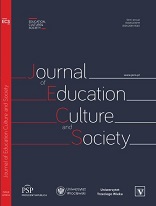Code Preferences of 1st Year undergraduate Students – Case Study of “Sociology of dispositional Groups” Students
Code Preferences of 1st Year undergraduate Students – Case Study of “Sociology of dispositional Groups” Students
Author(s): Kamil BłaszczyńskiSubject(s): School education, Educational Psychology
Published by: Fundacja Pro Scientia Publica
Keywords: elaborate code; restricted code; cultural capital; language code
Summary/Abstract: Because of the formal and non-formal changes, which are taking place in Polish higher education, the role and function of the university is also changing. Contemporary Polish students consider higher education as one of the phases of their career. The new generations of students expect rapid and effective education, perceiving academic education as a purchase of services or professional training. The aim of the study was to diagnose if those trends are visible also in the processes of communication between the students and the academic staff. To verify this thesis, the author diagnoses the language expression of students, in the form of essay writing. Expressions were analyzed quantitatively and were correlated with some chosen indicators of the students’ social background. Results indicated that students’ language expression could be divided into three types: mixed, restricted and elaborate expression. Each of those types can be classified as social codes, which have their own features. Gathered data only partially confirmed the hypothesis tested by the author. Because of the low scale of the study, it can only be considered an inspiration for other researchers and future studies on a high-scale level.
Journal: The Journal of Education, Culture, and Society
- Issue Year: 6/2015
- Issue No: 2
- Page Range: 184-195
- Page Count: 12
- Language: English

